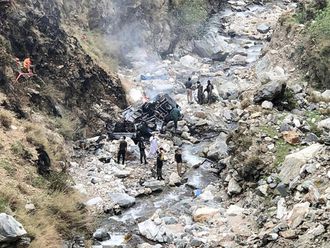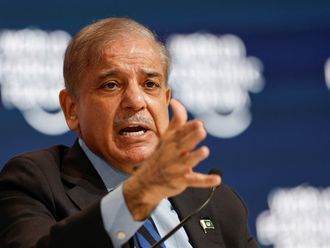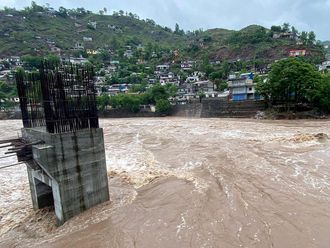ISLAMABAD: Chairperson Climate Change Caucus in Senate Senator, Sherry Rehman, has proposed to make Parliament of the country plastic-free by imposing a ban on plastic made material in and around the National Assembly and the Senate.
The move by the Senator who is also Parliamentary Leader of the Pakistan People’s Party (PPP) in the Upper House has gained momentum as civil society and diplomats are increasingly supporting this climate-friendly initiative by the senator.
Ambassador of the Netherlands Ardi Stoios-braken who is currently passing her leaves in the Netherlands, has posted the news on her social media account lending all support to Ms Rehman for this good cause.
A senior diplomat of the US while talking to Gulf News here Thursday said Pakistan is facing host of problems due to excessive plastic use and the sooner it is banned the better.
Sherry Rehman while presiding over a meeting of the Caucus at the Parliament House to discuss implementation status of the Basel Convention and other key issues pertaining to Pakistan’s capacity to comply with had called upon the Ministry of Climate Change to put forward recommendations to curtail the use of plastic and chart a way forward to phase out the excessive use of plastic.
Members of the Caucus underlined the need for a strong linkage between the federal and provincial governments to make joint efforts to discourage the excessive use of plastic.
Parliament House of Pakistan comprises of the National Assembly and senate, their secretariats and related departments, Parliament Lodges and the administrate blocks, and above all a well-equipped cafeteria that runs almost all the year.
Besides dine-in facility, food is also served as ‘take away’ and for that purpose the food bearers use plastic bags and packets to carry it along.
Sherry Rehman while chairing the meeting regretted that parliamentarians who are supposed to guide the public in matters related to their health and civic issues have not yet banned this most hazardous product in the Parliament House.
The members of the caucus agreeing with her unanimously held that Parliament should be made plastic free and a ban should be imposed on all plastic products in the premises.
They also held that the ban should not only be imposed in and around the Parliament but also in the rest of the federal capital.
A member held on the occasion that recycling of plastic requires political will and policy interventions to ensure its process and till we have some recycling units plastic should be banned completely in the country. In Islamabad’s two sectors E-8 and E-9 that are under the administrative control of Pakistan Navy and Pakistan Air Force respectively, plastic is already strictly banned.
The National Assembly was informed in December last year that Pakistan has been using around 55 billion plastic shopping bags each year while the use is on the rise at the rate of 15 per cent per annum.
There are about 8,021 production units in the country with average production capacity of 250-500 kilograms per day and majority of them are cottage industry.












